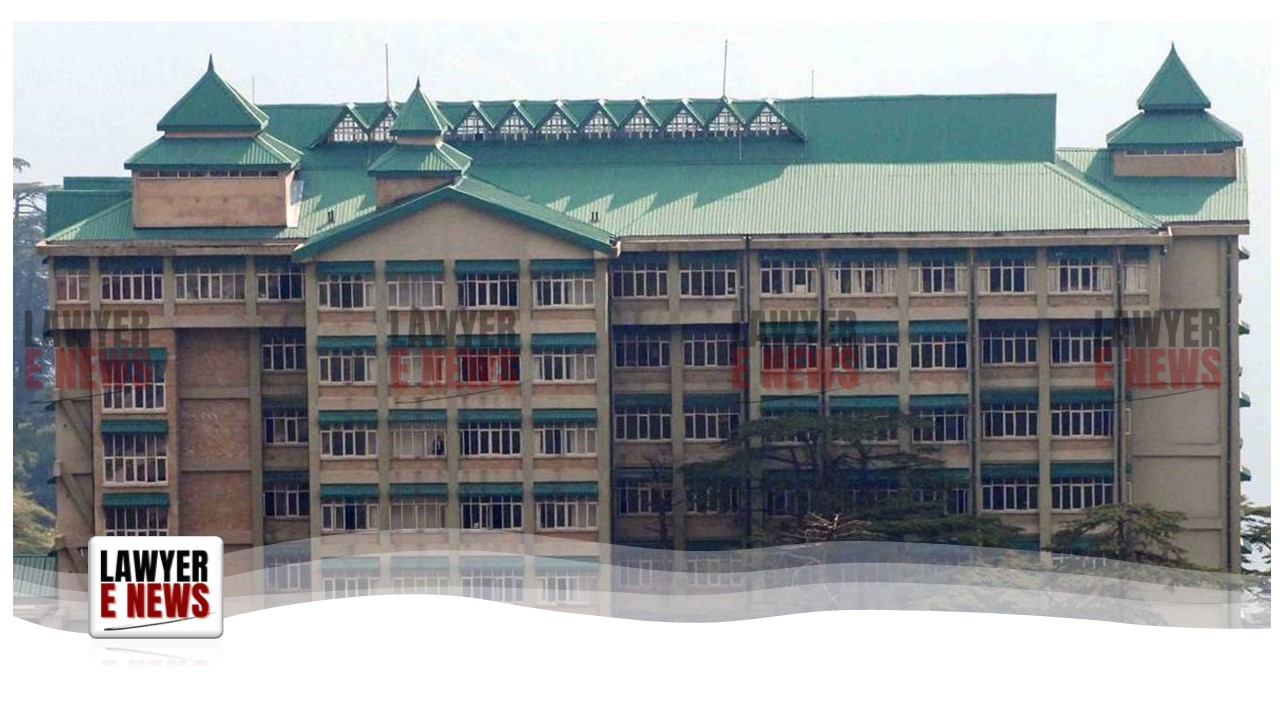-
by Admin
15 February 2026 5:35 AM



Himachal Pradesh High Court, in the case of Surinder Kumar & Ors. vs. State of Himachal Pradesh & Ors., ruled in favor of Primary Assistant Teachers (PAT), holding that their services should be regularized from the date of completion of 8/10 years of service, like their counterparts in the Gram Vidya Upasaks (GVU) and Para Teachers schemes. The court quashed the government's decision to regularize their services prospectively from 20.08.2020, deeming it discriminatory and violative of Articles 14 and 16 of the Constitution of India.
Discriminatory Prospective Regularization Violates Articles 14 and 16
"No Intelligible Differentia Justifies Differential Treatment of PAT Teachers"
In this judgment, the court addressed the issue of discrimination in regularizing PAT teachers' services from a prospective date while GVU and Para Teachers were regularized retrospectively. The Court ruled that PAT teachers formed a single class with GVU and Para Teachers, all of whom were appointed to address teacher shortages in tribal and remote areas. The exclusion of PAT teachers from retrospective regularization created an arbitrary distinction, violating the constitutional guarantee of equal treatment under Article 14.
On September 20, 2024, the Himachal Pradesh High Court, presided over by Justice Satyen Vaidya, delivered a significant ruling in Surinder Kumar & Ors. vs. State of Himachal Pradesh & Ors. The court addressed the contentious issue of the prospective regularization of Primary Assistant Teachers (PAT) from 20.08.2020. The petitioners sought parity with Gram Vidya Upasaks (GVU) and Para Teachers, who were regularized retrospectively after completing 8/10 years of service. The court held that the State Government's decision to regularize PAT teachers prospectively amounted to arbitrary discrimination and directed the State to regularize the services of the petitioners from 18.12.2014 with all consequential benefits.
The case originated from the Himachal Pradesh government’s decision to regularize PAT teachers prospectively from 20.08.2020, whereas GVU and Para Teachers had been regularized retrospectively upon completion of 8/10 years of service. The petitioners, who had their initial appointments under the PAT scheme between 2003 and 2007, contended that they were similarly situated to GVU and Para Teachers, both appointed to address a shortage of qualified teachers in difficult areas of Himachal Pradesh.
The dispute arose when the petitioners sought regularization from 09.12.2014, in line with a decision affecting GVU and Para Teachers. The petitioners alleged discrimination, pointing out that while they were regularized in 2020, other categories of teachers had been regularized from an earlier date despite similar circumstances.
The central legal issue in this case revolved around the violation of Articles 14 and 16 of the Constitution of India, which guarantee the right to equality and protection against arbitrary state action. The petitioners argued that the decision to regularize them from 2020 while other teachers were regularized from 2014 was discriminatory. They contended that all three categories of teachers—PAT, GVU, and Para Teachers—formed a single class, appointed under similar schemes for the same purpose.
The court observed that the State’s decision to regularize GVU and Para Teachers from an earlier date but apply a prospective date to PAT teachers lacked any “intelligible differentia” and thus violated the principle of equal treatment.
The Himachal Pradesh High Court quashed the government’s decision to regularize the services of the petitioners prospectively from 20.08.2020. The court emphasized that the petitioners were entitled to regularization from the date they completed 8/10 years of service, as was the case with GVU and Para Teachers. In Paragraph 21, the court highlighted the lack of justification for treating the petitioners differently:
“The exclusion of petitioners by not conferring upon them the benefit of regularization on completion of 8/10 years of service, as has been done in the case of GVU and Para Teachers, amounts to creation of a class without there being any intelligible differentia.”
Additionally, the court held that the State Government was estopped from denying the petitioners regularization from 2014, given that this issue had been settled by previous judgments of both the Himachal Pradesh High Court and the Supreme Court, affirming the regularization of teachers under similar schemes.
The court concluded that the government's decision to regularize PAT teachers from 2020 contradicted the settled law, thus breaching the principle of res judicata and estoppel. The petitioners’ services were ordered to be regularized from 18.12.2014, with all consequential benefits, including salary arrears.
The Himachal Pradesh High Court allowed the writ petitions, ruling that the petitioners were entitled to regularization from 18.12.2014, the same date as their counterparts under the GVU and Para Teachers schemes. The court declared the State’s decision to regularize them prospectively as violative of Articles 14 and 16 of the Constitution and directed the respondents to implement the regularization with all consequential benefits.
Decision Date: September 20, 2024
Surinder Kumar & Ors. vs. State of Himachal Pradesh & Ors.
